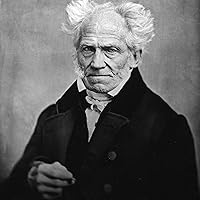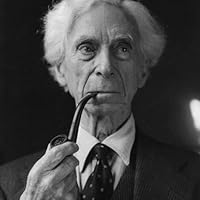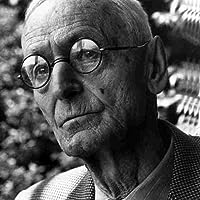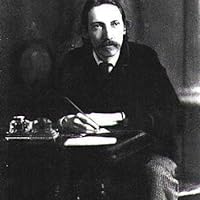Subjectivity Quotes
Quotes tagged as "subjectivity"
Showing 181-204 of 204

“Yes, there is an outside world, and yes, there is an objective reality, but in moving through this world, we constantly apply unconscious filter mechanisms, and in doing so, we unknowingly construct our own individual world, which is our "reality tunnel.”
― The Ego Tunnel: The Science of the Mind and the Myth of the Self
― The Ego Tunnel: The Science of the Mind and the Myth of the Self

“Innate in nearly every artistic nature is a wanton, treacherous penchant for accepting injustice when it creates beauty and showing sympathy for and paying homage to aristocratic privilege.”
― Death in Venice and Other Tales
― Death in Venice and Other Tales
“Centuries of navel-gazing. Millennia of masturbation. Plato to Descartes to Dawkins to Rhanda. Souls and zombie agents and qualia. Kolmogorov complexity. Consciousness as Divine Spark. Consciousness as electromagnetic field. Consciousness as functional cluster.
I explored it all.
Wegner thought it was an executive summary. Penrose heard it in the singing of caged electrons. Nirretranders said it was a fraud; Kazim called it leakage from a parallel universe. Metzinger wouldn't even admit it existed. The AIs claimed to have worked it out, then announced they couldn't explain it to us. Gödel was right after all: no system can fully understand itself.
Not even the synthesists had been able to rotate it down. The load-bearing beams just couldn't take the strain.
All of them, I began to realize, had missed the point. All those theories, all those drugdreams and experiments and models trying to prove what consciousness was: none to explain what it was good for. None needed: obviously, consciousness makes us what we are. It lets us see the beauty and the ugliness. It elevates us into the exalted realm of the spiritual. Oh, a few outsiders—Dawkins, Keogh, the occasional writer of hackwork fiction who barely achieved obscurity—wondered briefly at the why of it: why not soft computers, and no more? Why should nonsentient systems be inherently inferior? But they never really raised their voices above the crowd. The value of what we are was too trivially self-evident to ever call into serious question.
Yet the questions persisted, in the minds of the laureates, in the angst of every horny fifteen-year-old on the planet. Am I nothing but sparking chemistry? Am I a magnet in the ether? I am more than my eyes, my ears, my tongue; I am the little thing behind those things, the thing looking out from inside. But who looks out from its eyes? What does it reduce to? Who am I? Who am I? Who am I?
What a stupid fucking question. I could have answered it in a second, if Sarasti hadn't forced me to understand it first.”
― Blindsight
I explored it all.
Wegner thought it was an executive summary. Penrose heard it in the singing of caged electrons. Nirretranders said it was a fraud; Kazim called it leakage from a parallel universe. Metzinger wouldn't even admit it existed. The AIs claimed to have worked it out, then announced they couldn't explain it to us. Gödel was right after all: no system can fully understand itself.
Not even the synthesists had been able to rotate it down. The load-bearing beams just couldn't take the strain.
All of them, I began to realize, had missed the point. All those theories, all those drugdreams and experiments and models trying to prove what consciousness was: none to explain what it was good for. None needed: obviously, consciousness makes us what we are. It lets us see the beauty and the ugliness. It elevates us into the exalted realm of the spiritual. Oh, a few outsiders—Dawkins, Keogh, the occasional writer of hackwork fiction who barely achieved obscurity—wondered briefly at the why of it: why not soft computers, and no more? Why should nonsentient systems be inherently inferior? But they never really raised their voices above the crowd. The value of what we are was too trivially self-evident to ever call into serious question.
Yet the questions persisted, in the minds of the laureates, in the angst of every horny fifteen-year-old on the planet. Am I nothing but sparking chemistry? Am I a magnet in the ether? I am more than my eyes, my ears, my tongue; I am the little thing behind those things, the thing looking out from inside. But who looks out from its eyes? What does it reduce to? Who am I? Who am I? Who am I?
What a stupid fucking question. I could have answered it in a second, if Sarasti hadn't forced me to understand it first.”
― Blindsight

“Well, it all comes to this, there's no use trying to live in other people's opinions. The only thing to do is to live in our own.”
― Emily Climbs
― Emily Climbs

“That which knows all things and is known by none is the subject.”
― The World as Will and Representation, Volume I
― The World as Will and Representation, Volume I

“Intellectually, what is stimulating to a young man is a problem of obvious practical importance. A young man learning economics, for example, ought to hear lectures from individualists and socialists, protectionists and free-traders, inflationists and believers in the gold standard. He ought to be encouraged to read the best books of the various schools, as recommended by those who believe in them. This would teach him to weigh arguments and evidence, to know that no pinion is certainly right, and to judge men by their quality rather than by their consonance with preconceptions.”
― Sceptical Essays
― Sceptical Essays

“We do not see things as they are, nor do we even see them as we are, but only as we believe our story to have been.”
―
―

“In conscious life, we achieve some sense of ourselves as reasonably unified, coherent selves, and without this action would be impossible. But all this is merely at the ‘imaginary’ level of the ego, which is no more than the tip of the iceberg of the human subject known to psychoanalysis. The ego is function or effect of a subject which is always dispersed, never identical with itself, strung out along the chains of the discourses which constitute it. There is a radical split between these two levels of being — a gap most dramatically exemplified by the act of referring to myself in a sentence. When I say ‘Tomorrow I will mow the lawn,’ the ‘I’ which I pronounce is an immediately intelligible, fairly stable point of reference which belies the murky depths of the ‘I’ which does the pronouncing. The former ‘I’ is known to linguistic theory as the ‘subject of the enunciation’, the topic designated by my sentence; the latter ‘I’, the one who speaks the sentence, is the ‘subject of the enunciating’, the subject of the actual act of speaking. In the process of speaking and writing, these two ‘I’s’ seem to achieve a rough sort of unity; but this unity is of an imaginary kind. The ‘subject of the enunciating’, the actual speaking, writing human person, can never represent himself or herself fully in what is said: there is no sign which will, so to speak, sum up my entire being. I can only designate myself in language by a convenient pronoun. The pronoun ‘I’ stands in for the ever-elusive subject, which will always slip through the nets of any particular piece of language; and this is equivalent to saying that I cannot ‘mean’ and ‘be’ simultaneously. To make this point, Lacan boldly rewrites Descartes’s ‘I think, therefore I am’ as: ‘I am not where I think, and I think where I am not.”
― Literary Theory: An Introduction
― Literary Theory: An Introduction

“But fairytales were, at best, dirty mirrors whose warped and pitted surfaces reflected a highly distorted view of the truth, quite different from reality.”
― Black Beast
― Black Beast
“There is no law by which to determine the superiority of nations; hence the vanity of the claim, and the idleness of disputes about it. A people risen, run their race, and die either of themselves or in the hands of another, who, succeeding to their power, take possession of their place, and upon their monuments write new names; such is history.”
― Ben-Hur: A Tale of the Christ
― Ben-Hur: A Tale of the Christ

“To stand on one leg and prove God's existence is a very different thing from going on one's knees and thanking Him.”
―
―

“Those two little words -- says you -- are the most powerful argument in any discipline: theology, philosphy, even domestic harmony. They are powerful because they are true. Whenever you say something, it is you who says it. You. And what do you know?”
― Rethinking Worldview: Learning to Think, Live, and Speak in This World
― Rethinking Worldview: Learning to Think, Live, and Speak in This World
“A system of justice does not need to pursue retribution. If the purpose of drug sentencing is to prevent harm, all we need to do is decide what to do with people who pose a genuine risk to society or cause tangible harm. There are perfectly rational ways of doing this; in fact, most societies already pursue such policies with respect to alcohol: we leave people free to drink and get inebriated, but set limits on where and when. In general, we prosecute drunk drivers, not inebriated pedestrians.
In this sense, the justice system is in many respects a battleground between moral ideas and evidence concerning how to most effectively promote both individual and societal interests, liberty, health, happiness and wellbeing. Severely compromising this system, insofar as it serves to further these ideals, is our vacillation or obsession with moral responsibility, which is, in the broadest sense, an attempt to isolate the subjective element of human choice, an exercise that all too readily deteriorates into blaming and scapegoating without providing effective solutions to the actual problem. The problem with the question of moral responsibility is that it is inherently subjective and involves conjecture about an individuals’ state of mind, awareness and ability to act that can rarely if ever be proved. Thus it involves precisely the same type of conjecture that characterizes superstitious notions of possession and the influence of the devil and provides no effective means of managing conduct: the individual convicted for an offence or crime considered morally wrong is convicted based on a series of hypotheses and probabilities and not necessarily because he or she is actually morally wrong. The fairness and effectiveness of a system of justice based on such hypotheses is highly questionable particularly as a basis for preventing or reducing drug use related harm. For example, with respect to drugs, the system quite obviously fails as a deterrent and the system is not organised to ‘reform’ the offender much less to ensure that he or she has ‘learned a lesson’; moreover, the offender does not get an opportunity to make amends or even have a conversation with the alleged victim. In the case of retributive justice, the justice system is effectively mopping up after the fact. In other words, as far as deterrence is concerned, the entire exercise of justice becomes an exercise based on faith, rather than one based on evidence.”
― Entheogens, Society and Law: The Politics of Consciousness, Autonomy and Responsibility
In this sense, the justice system is in many respects a battleground between moral ideas and evidence concerning how to most effectively promote both individual and societal interests, liberty, health, happiness and wellbeing. Severely compromising this system, insofar as it serves to further these ideals, is our vacillation or obsession with moral responsibility, which is, in the broadest sense, an attempt to isolate the subjective element of human choice, an exercise that all too readily deteriorates into blaming and scapegoating without providing effective solutions to the actual problem. The problem with the question of moral responsibility is that it is inherently subjective and involves conjecture about an individuals’ state of mind, awareness and ability to act that can rarely if ever be proved. Thus it involves precisely the same type of conjecture that characterizes superstitious notions of possession and the influence of the devil and provides no effective means of managing conduct: the individual convicted for an offence or crime considered morally wrong is convicted based on a series of hypotheses and probabilities and not necessarily because he or she is actually morally wrong. The fairness and effectiveness of a system of justice based on such hypotheses is highly questionable particularly as a basis for preventing or reducing drug use related harm. For example, with respect to drugs, the system quite obviously fails as a deterrent and the system is not organised to ‘reform’ the offender much less to ensure that he or she has ‘learned a lesson’; moreover, the offender does not get an opportunity to make amends or even have a conversation with the alleged victim. In the case of retributive justice, the justice system is effectively mopping up after the fact. In other words, as far as deterrence is concerned, the entire exercise of justice becomes an exercise based on faith, rather than one based on evidence.”
― Entheogens, Society and Law: The Politics of Consciousness, Autonomy and Responsibility

“Even more remote from his way of thinking, even more impossible than any other thought, would have been words such as this: “Is it only I alone who have created this experience, or is it objective reality? Does the Master have the same feelings as I, or would mine amuse him? Are my thoughts new, unique, my own, or have the Master and many before him experienced and thought exactly the same?” No, for him there were no such analyses and differentiations. Everything was reality, was steeped in reality, full of it as bread dough is of yeast.”
― The Glass Bead Game
― The Glass Bead Game
“We live our lives based on the assumption that we directly perceive, and are accurately interpreting, objects with a fair amount of accuracy. Since we naturally assume that we are apprehending objects of cognition as best as possible, it does not occur to us that we are purposely twisting the object before our eyes to fit our own convenience.”
― Living Yogācāra: An Introduction to Consciousness-Only Buddhism
― Living Yogācāra: An Introduction to Consciousness-Only Buddhism

“One criticism of Freud still sometimes heard on the political Left is that his thinking is individualist — that he substitutes ‘private’ psychological causes and explanations for social and historical ones. This accusation reflects a radical misunderstanding of Freudian theory. There is indeed a real problem about how social and historical factors are related to the unconscious; but one point of Freud’s work is that it makes it possible for us to think of the development of the human individual in social and historical terms. What Freud produces, indeed, is nothing less than a materialist theory of the making of the human subject. We come to be what we are by an interrelation of bodies — by the complex transactions which take place during infancy between our bodies and those which surround us. This is not a biological reductionism: Freud does not of course believe that we are nothing but our bodies, or that our minds are mere reflexes of them. Nor is it an asocial model of life, since the bodies which surround us, and our relations with them, are always socially specific.”
― Literary Theory: An Introduction
― Literary Theory: An Introduction

“What Althusser does… is to rethink the concept of ideology in terms of Lacan’s ‘imaginary’. For the relation of an individual subject to society as a whole in Althusser’s theory is rather like the relation of the small child to his or her mirror-image in Lacan’s. In both cases, the human subject is supplied with a satisfyingly unified image of selfhood by identifying with an object which reflects this image back to it in a closed, narcissistic circle. In both cases, too, this image involves a misrecognition, since it idealizes the subject’s real situation. The child is not actually as integrated as its image in the mirror suggests; I am not actually the coherent, autonomous, self generating subject I know myself to be in the ideological sphere, but the ‘decentred’ function of several social determinants. Duly enthralled by the image of myself I receive, I subject myself to it; and it is through this ‘subjection’ that I become a subject.”
― Literary Theory: An Introduction
― Literary Theory: An Introduction

“Arguments led by subjectivity are a waste of time. And, if they take place online, add to that, a waste of one’s keyboard.”
―
―

“We had each of us some whimsy in the brain, which we believed more than anything else, and which discoloured all experience to its own shade.”
― Virginibus Puerisque and Other Papers
― Virginibus Puerisque and Other Papers

“Shows itself in the notion that what may be objectively true may in the mouth of certain people become false.”
―
―

“What we take ourselves to be doing when we think about what is the case or how we should act is something that cannot be reconciled with a reductive naturalism, for reasons distinct from those that entail the irreducibility of consciousness. It is not merely the subjectivity of thought but its capacity to transcend subjectivity and to discover what is objectively the case that presents a problem....
Thought and reasoning are correct or incorrect in virtue of something independent of the thinker's beliefs, and even independent of the community of thinkers to which he belongs. (p. 71)”
― Mind & Cosmos: Why the Materialist Neo-Darwinian Conception of Nature is Almost Certainly False
Thought and reasoning are correct or incorrect in virtue of something independent of the thinker's beliefs, and even independent of the community of thinkers to which he belongs. (p. 71)”
― Mind & Cosmos: Why the Materialist Neo-Darwinian Conception of Nature is Almost Certainly False

“I will only start taking book reviews seriously from the day that books are able to review readers.”
―
―

“There's no such thing as great art or poor art. Art is subjective expression. As such, it can be judged only as popular or unpopular. What is banned in Boston may one day receive a million-dollar bid at Christie's. Art has, therefore, no use for critics but frequently finds itself amused by commentators.”
―
―
All Quotes
|
My Quotes
|
Add A Quote
Browse By Tag
- Love Quotes 97k
- Life Quotes 75.5k
- Inspirational Quotes 72.5k
- Humor Quotes 43.5k
- Philosophy Quotes 29.5k
- Inspirational Quotes Quotes 27k
- God Quotes 26k
- Truth Quotes 23.5k
- Wisdom Quotes 23.5k
- Romance Quotes 23k
- Poetry Quotes 22k
- Death Quotes 20k
- Happiness Quotes 18.5k
- Life Lessons Quotes 18.5k
- Hope Quotes 18k
- Faith Quotes 18k
- Quotes Quotes 16.5k
- Inspiration Quotes 16.5k
- Spirituality Quotes 15k
- Religion Quotes 15k
- Motivational Quotes 15k
- Writing Quotes 14.5k
- Relationships Quotes 14.5k
- Life Quotes Quotes 14k
- Love Quotes Quotes 13.5k
- Success Quotes 13.5k
- Time Quotes 12.5k
- Motivation Quotes 12k
- Science Quotes 11.5k
- Knowledge Quotes 11k

